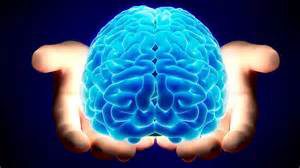Background Passage: Psalm 139
The brightest minds in Greek and Roman worlds for centuries before and after the time of Christ believed human wisdom, emotion, memory and thought centered in the heart, not the brain. Ancient ideas of physiology and psychology told them that God spoke through the heart; that within the heart lived the essence of man’s soul. They believed the brain was an internal radiator that simply cooled the blood as it circulated through the body.
Influenced by these cultures, the ancient Hebrews understood that the core of who and what they were was centered in the heart. In other words, like the ancient Greeks, they believed the heart was the focus of all rational thought and emotion. So unimportant was the brain in Hebrew thinking that the word is never recorded in scripture…not once.
Scientifically, we know the ancients were wrong. We continue to learn more about the brain as the depth of scientific research grows into the complex role it plays in our how we think, feel and learn. Though we know better, we still speak of “feeling” and “thinking” with our hearts, a metaphorical echo of scientific error relegated to the pages of history.
The human brain functions as one of God’s most marvelous creations, yet only in the past 150 years have scientists and physicians made serious efforts to understand how it works. In 1861, French physician Pierre Paul Broca discovered that small region of the left frontal lobe of the brain controls our ability to speak. In subsequent studies since that time, scientists have identified 83 specific areas of the brain that activate when we recognize a face, read a book, think about a specific memory or do certain types of physical work.
Neuroscientists at the University of Washington recently published a new map of the brain, revealing more than 97 previously unknown regions of the brain to add to the 83 areas already familiar to today’s scientists.
A Stanford University study recently used a new imaging technique called array tomography to look more closely at the brain’s neurons and synapses. The data collected produced a three-dimensional picture of these tiny cell connections. The images indicate that the number of synapses in the brain exceed the number of estimated stars in 1,500 Milky Way galaxies combined, making the brain far more complex that previously understood.
These new discoveries caused a few of my own synapses to make a few new connections. I thought of Psalms 139. The Psalmist, in his praise of God, wrote beautiful lyrics about his creative work.
“For you created my inmost being;
you knit me together in my mother’s womb.
I praise you because I am fearfully and wonderfully made;
Your works are wonderful,
I know that full well.”
We are God’s creation. Whether we developed through an evolutionary process or appeared in a molding of clay and bone is really immaterial to me. Neither view changes my understanding of God as Creator. To focus on that debate misses the point of my personal relationship to him. That he gave me this marvelous brain that thinks, acts, reasons, chooses, understands and loves is an amazing gift that governs my relationships to my God and to others. That he gave me the ability to grasp the concept of faith in him is grace in full measure.
That thought led to another. My son and his wife, Melissa, are expecting their second child in December. They have named her Amelia Diane. We saw another ultrasound of her yesterday. Even now as her body is developing inside the womb, God knows her and all she will become. The Psalmist explored that idea, also.
“Your eyes saw my unformed body;
all the days ordained for me were written in your book
before one of them came to be.”
I think of these things not to get into a debate on abortion and the definition of when life starts. Rather, I stand amazed that God already knows my granddaughter. That a God-ordained, perfect plan already exists for her life. That the only things standing in the way of that life are the choices she makes and the positive influence brought to bear through the unconditional love of her Christian parents and all of those who enter her life.
Her intricate and incomparable brain will be imprinted with her God-given uniqueness etched throughout its gray matter. The life he plans for her will unfold as it is imparted by her parents, instructed by gifted teachers at church and at school, and inspired by the love of family and friends that desire only the best for her.
One final thought occurred to me as I read again this familiar scripture. Intellectually, I know our brains, not our hearts, make us who we are. Yet, we must continue to lean upon the understanding of the ancients, like the Psalmist, to express our desire to be all that God wants us to be.
He planted a seed in all of us that longs for a Father. As we allow that seed to grow, God guides our lives through every trial, test and temptation. The seed, that free-will choice of heart and head–creates purpose. We uncover our purpose in God when we honestly seek him and genuinely desire to walk the path he sets out for us. As the Psalmist sang,
“Search me, God and know my heart;
test me and know my anxious thoughts.
See if there is any offensive way in me.
Lead me in the way everlasting.”

Nice connections. Keep dong this. We look forward to reading them each week. Good food for thought and nice reminders of the goodness of God. Thanks.
Congratulations on another grandchild.
Wonderfully written my friend.